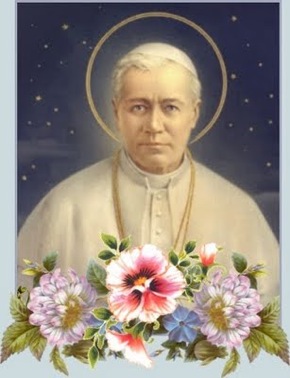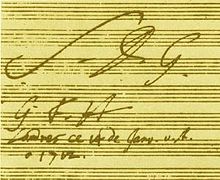
 EFORE ONE CAN EVEN BEGIN talking about music in the liturgy, one must understand something about the Sacred Liturgy itself. No conversation about liturgical music based on personal taste can yield much fruit without fundamental understanding of the purpose of the mass.
EFORE ONE CAN EVEN BEGIN talking about music in the liturgy, one must understand something about the Sacred Liturgy itself. No conversation about liturgical music based on personal taste can yield much fruit without fundamental understanding of the purpose of the mass.
In his 1903 Motu Proprio, Tra le Sollecitudini (“Instruction on Sacred Music”) Pope Saint Pius X begins his “instruction” as he describes the overall purpose of the liturgy as “the glory of God and the sanctification, the edification of the faithful.”
Sacrosanctum Concilium echoes this statement in The Nature of the Sacred Liturgy and Its Importance in the Church’s Life: (§7) “Christ indeed always associates the Church with Himself in this great work wherein God is perfectly glorified and men are sanctified.”
Further echoing Saint Pius X: “For His humanity, united with the person of the Word, was in the instrument of our salvation…The wondrous redemption of the whole Church.” (Sacrosanctum Concillium, §5)
That the singularly most important purpose of the mass is to glorify God seems like something we could not possibly forget, yet it happens and sometimes quite frequently. It is easy to become too mindful of ourselves and of our own problems, or of our own importance in context of the liturgy. God already knows our most inner thoughts and needs, and certainly we must bring our prayers and petitions to God. But preoccupied self-absorption or self-importance (I am very guilty of this more than just occasionally!) distorts the nature of the Sacred Liturgy. Quite happily, focus on God alone points to the second part of Saint Pius X’s statement: “the edification and sanctification of the people.” God finds us and gives us the grace we need despite our sins and flaws.
Giving glory to God alone leads to our sanctification and edification! Singing God’s praises is necessary for personal and communal sanctification and edification.
Therefore, as a community joins together to praise God, something quite interesting happens: not only do individuals grow in faith, but also the community unifies and intensifies with greater strength than ever. In a sense, the “vertical” strengthens the “horizontal”. Ultimately, the goal of the community and of the whole Church is Christ-like living: Lex orandi, lex credendi, lex Vivendi – the law of prayer is the law of belief, which points to the law of how Christians must live. More simply put, the liturgy reminds us if we truly believe what we pray, we must respond to God’s call by that way that we live. 

 NOTHER IMPORTANT QUESTION about the liturgy was posed by Bishop Sample at the CMAA Sacred Music Colloquium. While the mass is a celebration, perhaps we must ask what it is we are celebrating. Is it a party? Is it a shared communal meal? Is it self-affirmation? These are not necessarily bad things, and in fact they can be quite good and helpful in the right context. But during the liturgy they distort what is essential for our souls: Jesus who died for us redeems us by His Body and Blood. We are a saved people! (This is why we celebrate Easter for 50 days after a Lenten preparation of 40 days.) That we are saved is all quite remarkable and joyful.
NOTHER IMPORTANT QUESTION about the liturgy was posed by Bishop Sample at the CMAA Sacred Music Colloquium. While the mass is a celebration, perhaps we must ask what it is we are celebrating. Is it a party? Is it a shared communal meal? Is it self-affirmation? These are not necessarily bad things, and in fact they can be quite good and helpful in the right context. But during the liturgy they distort what is essential for our souls: Jesus who died for us redeems us by His Body and Blood. We are a saved people! (This is why we celebrate Easter for 50 days after a Lenten preparation of 40 days.) That we are saved is all quite remarkable and joyful.
But our redemption is not possible without the Sacrifice of our Savior. We cannot sidestep nor gloss over the Sacrifice. Without Good Friday, there is no Easter Sunday. Without the dying, there is no rising. God alone is the center of our prayer. From this, flows our redemption.
Sacrosanctum Concillium (§5) furthermore states under The Nature of the Sacred Liturgy and Its Importance in the Church’s Life, “For His humanity, united with the person of the Word, was in the instrument of our salvation…The wondrous redemption of the whole Church.”
OK, we may know all of this already. But it is remarkable that we may joyfully embrace in our hearts our redemption through Christ’s Sacrifice. This is what we celebrate every Sunday and every day at every mass! In the words of the anamnesis: “Save us, Savior of the world, that by your cross and Resurrection, you have set us free.”
Sacrosanctum Concillium (§2): “For the liturgy, ‘through which the work of our redemption is accomplished.’ (Secret of the ninth Sunday after Pentecost) most of all in the divine sacrifice of the Eucharist, is the outstanding means by whereby the faithful may express in their lives, and manifest to others, the mystery of Christ and the real nature of the true Church.”
As we are united in the Eucharist, in Christ’s loving act of self-sacrifice is this not worthy of joyful praise of God and God alone?
I have not even begun to speak of music at liturgy, music worthy of praising the God who loves us to the point of death on a cross. Where will this understanding lead us in our sacred music? Interesting things happen in our lives when we worship God.
So, perhaps this discussion on music for the Sacred Liturgy must begin from the beginning:
Soli Deo Gloria! Give glory to God alone!

